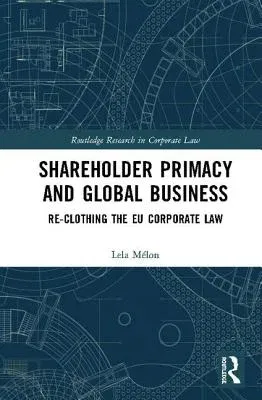In the context of growing public interest in sustainability, Corporate
Social Responsibility (CSR) has not brought about the expected
improvement in terms of sustainable business. Self-regulation has been
unable to provide appropriate answers for unsustainable business
frameworks, despite empirical proof that sustainable behaviour is
entirely in corporate enlightened self-interest. The lack of success of
the soft law approach suggests that hard law regulation may be needed
after all. This book discusses these options, alongside the issue of
shareholder primacy and its externalities in corporate, social, and
natural environment.
To escape the "prisoner's dilemma" European corporations and their
global counterparts have found themselves in, help is needed in the form
of EU hard law to advocate sustainability through mandatory rules. This
book argues that the necessity of these laws is based on the
first-mover's advantage of such corporate law approach towards
sustainable development. In the current EU law environment, where
codification of corporate law is sought for, forming and defining a
general EU policy could not only help corporations embrace this
self-enlightened behaviour but could also build the necessary "EU
corporate citizenship" atmosphere. Considering the developments in the
field of CSR as attempts to mitigate negative externalities resulting
from inappropriate shareholder primacy use, the book is centred around a
discussion of the shareholder primacy paradigm, its legal position and
its (un)suitability for modern global business.
Going beyond solely legal analysis, juxtaposing legal principles and
argumentation with economic theoretic approaches and, more importantly,
real-life examples, this book is accessible to both professionals and
academics working within the fields of business, economics, corporate
governance and corporate law.

